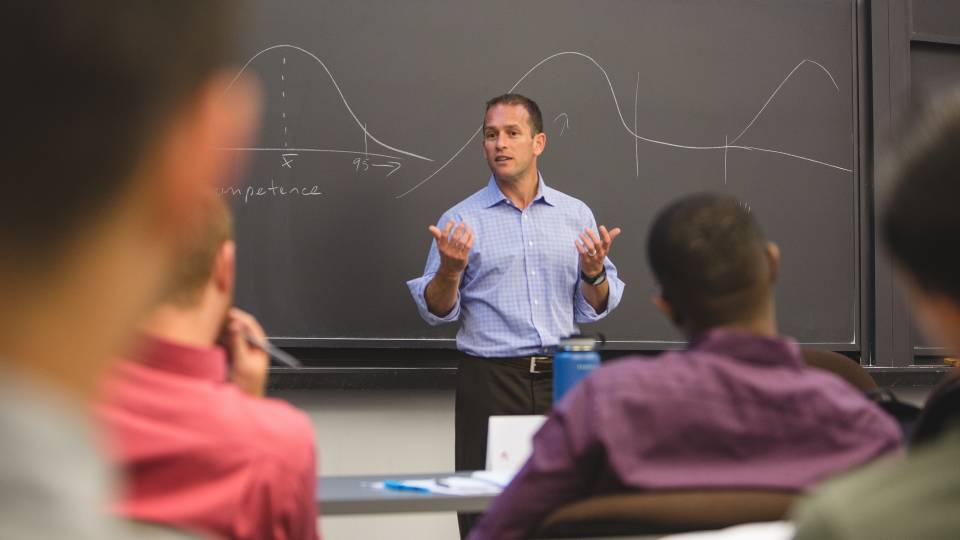Anti-American public sentiment in Arab nations has reached a dangerous boiling point, according to Marjorie Ransom and David Ransom ’60 , a wife-and-husband team of American diplomats with decades of service in the Middle East.
During a joint lecture Sunday, Nov. 17, the pair maintained that the Palestinian-Israeli conflict and the threatened U.S. invasion of Iraq, along with a malaise in politically and economically stagnant Arab countries, has culminated in the most Arab anger toward America they have ever seen.
“In my experience of 30 years I have seen periods of equal bitterness, but the stakes are higher this time and the anger is greater,″ said David Ransom. “It’s a boiling situation.″
Marjorie Ransom credited the Bush administration with re-establishing “public diplomacy″ that seeks to bring an American point of view to Arab populations. Over the long term, she said, American commitment to human rights and the rule of law is an alluring contrast to “extreme Islamists (and) unreasoning Arab nationalists.″
“In the short term,″ she warned, “public diplomacy cannot stem the rising tide of antipathy for Israeli repression of the Palestinians and our apparent tolerance of it.″
The Ransoms have been advocating American policies to Arab governments and reporting Arab response back to Washington since Lyndon Johnson was president.
Marjorie Ransom, now an associate at the Institute for the Study of Diplomacy at Georgetown University, was the first female U.S. foreign service officer to serve in the Arab world. She was director of the U.S. Information Agency in Syria and Egypt, among many postings.
David Ransom is the former U.S. ambassador to Bahrain and was a State Department officer in Yemen, Abu Dhabi and Syria, as well as in the State Department’s Near East bureau in Washington.
“In the last few years, thanks to the likes of Arafat and Sharon, our dream that (an Israeli-Palestinian) agreement was not just possible but inevitable has been shattered,″ he said. “The tide of anti-Americanism in the Middle East is rising and the threat to our government and the governments of our friends is alarming. The threat of terrorism to us, in Washington and other American cities is, I think, swelling.″
As many Arab-American groups have stated, anti-Arab sentiments in America have been on the rise since Sept. 11. The Ransoms noted that there have been more than 1,000 arrests of Arabs -- both U.S. citizens and those living here on visas -- but none of the suspects have proven to be terrorists. The long delays processing visas for visitors from Arab countries are “unconscionable,″ they added.
While American diplomats are duty bound to adhere to the President’s policy, the Ransoms said they believe that foreign service officers have doubts about the wisdom of current policy in the Middle East.
“I think it is fair to say that among our ambassadors in the region, and probably among many of the officers of the Near Eastern Division in Washington, there is a perception that we have all but abandoned the (Israeli-Palestinian) peace process, and at the same time are preparing for large scale military efforts to change the noxious regime in Baghdad,″ said David Ransom.
The Ransoms made their presentation as part of the Princeton Middle East Society Speaker Series and was co-sponsored by the International Center.
Contact: Lauren Robinson-Brown (609) 258-3601
